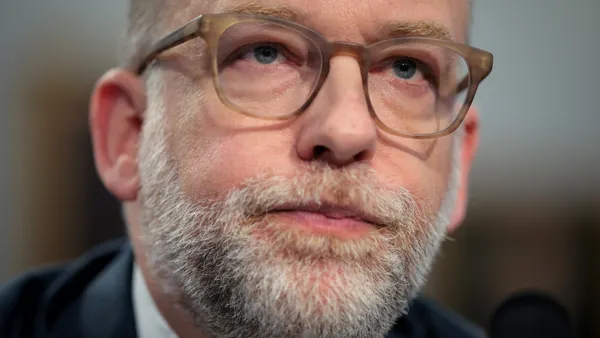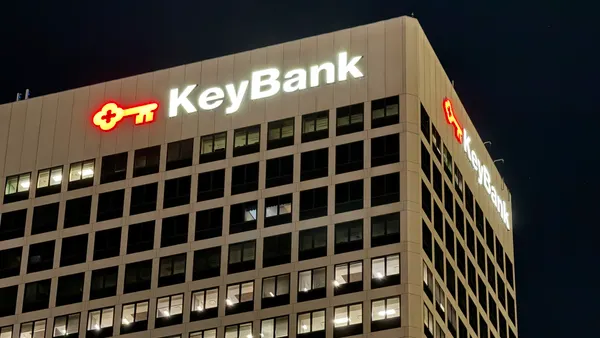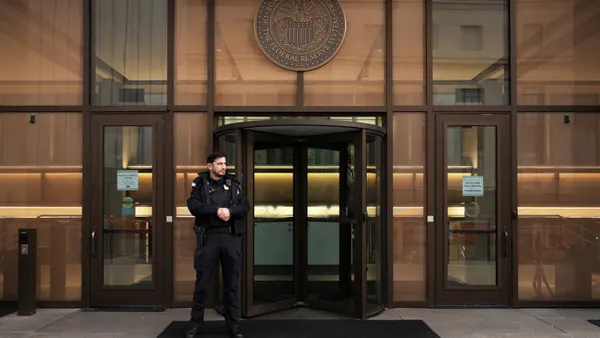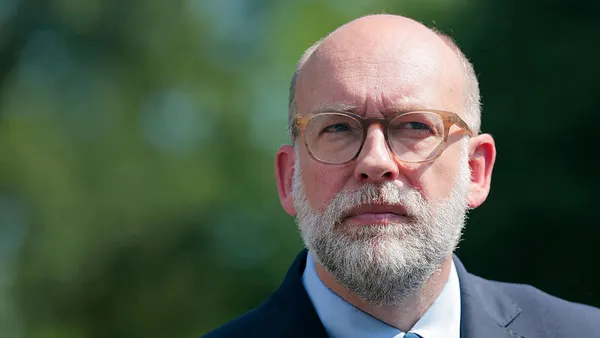Addressing debanking isn’t a new concern for the Office of the Comptroller of the Currency, said the agency’s chief, Jonathan Gould. He remembers encountering it during his first stint at the OCC eight years ago, and while on staff at the Senate Banking Committee before that.
“It morphs from one lawful business category to another,” he said Oct. 28 in an interview at the Money20/20 conference in Las Vegas. “First, it was payday lenders, it was ATM operators. It's morphed over the years from one thing to the next, depending upon, candidly, certain individuals’ political or policy objectives. So it's shifted, but in all cases, it's always inappropriate.”
Murmurs of debanking have been coming out of the cryptocurrency sphere for a handful of years, with the Biden administration blamed for its alleged effort to keep crypto out of the traditional banking sector, dubbed Operation Choke Point 2.0.
Since January, the conversation around “politicized debanking” has been stirred up by President Donald Trump’s allegations that Bank of America and other lenders debanked conservatives. Interest in addressing the issue has since come from both sides of the aisle. Sen. Elizabeth Warren, D-MA, said in a February hearing that debanking “shouldn’t be happening, and we need to figure out why and who is responsible.”
Gould returned to the OCC in July to “the continuation” of the issue he’d worked on during his prior stint. There was “even more of an urgency to address it” when Trump in August issued a related executive order, Gould said.
But debanking isn’t the only holdover issue that Gould is again focused on.
Another is regulatory tailoring, he said, particularly designed to lessen the burden on community banks.
“We’re moving pretty quickly, but there’s still a lot of stuff to do there,” he said.
New guidance was issued last month, including eliminating exam requirements for community banks that are not specifically laid out by statute. The proposals came out of the agency’s newly dedicated Community Bank Supervision group, the creation of which Gould called one of “the most important things” the OCC has done of late.
The OCC is intent on “making sure that we are tailoring our supervision – and our regulation, but importantly, our supervision – to community banks and the actual risks that they pose in a way that's proportionate because we have not, in all instances, always done that,” Gould said.
Community banks “do a disproportionate amount of [agricultural] lending, small-business lending, and a lot of critical things that actually make local economies turn,” he said.
The agency will propose more changes in the coming months aimed at relieving small lenders’ supervisory and regulatory burdens, he said.
Further, two other issues he’s returning to at the OCC include “invigorating de novo chartering in America,” he said, as well as figuring out “how we better manage the agency – we’ve got a long way to go there.”
“I hope that when the 33rd comptroller shows up, at some uncertain date in the future, that that person will not blame me for kicking any cans down the road,” Gould said. “So we're trying to address the issues that present themselves to us both in the short term and the long term for the banking system.”











